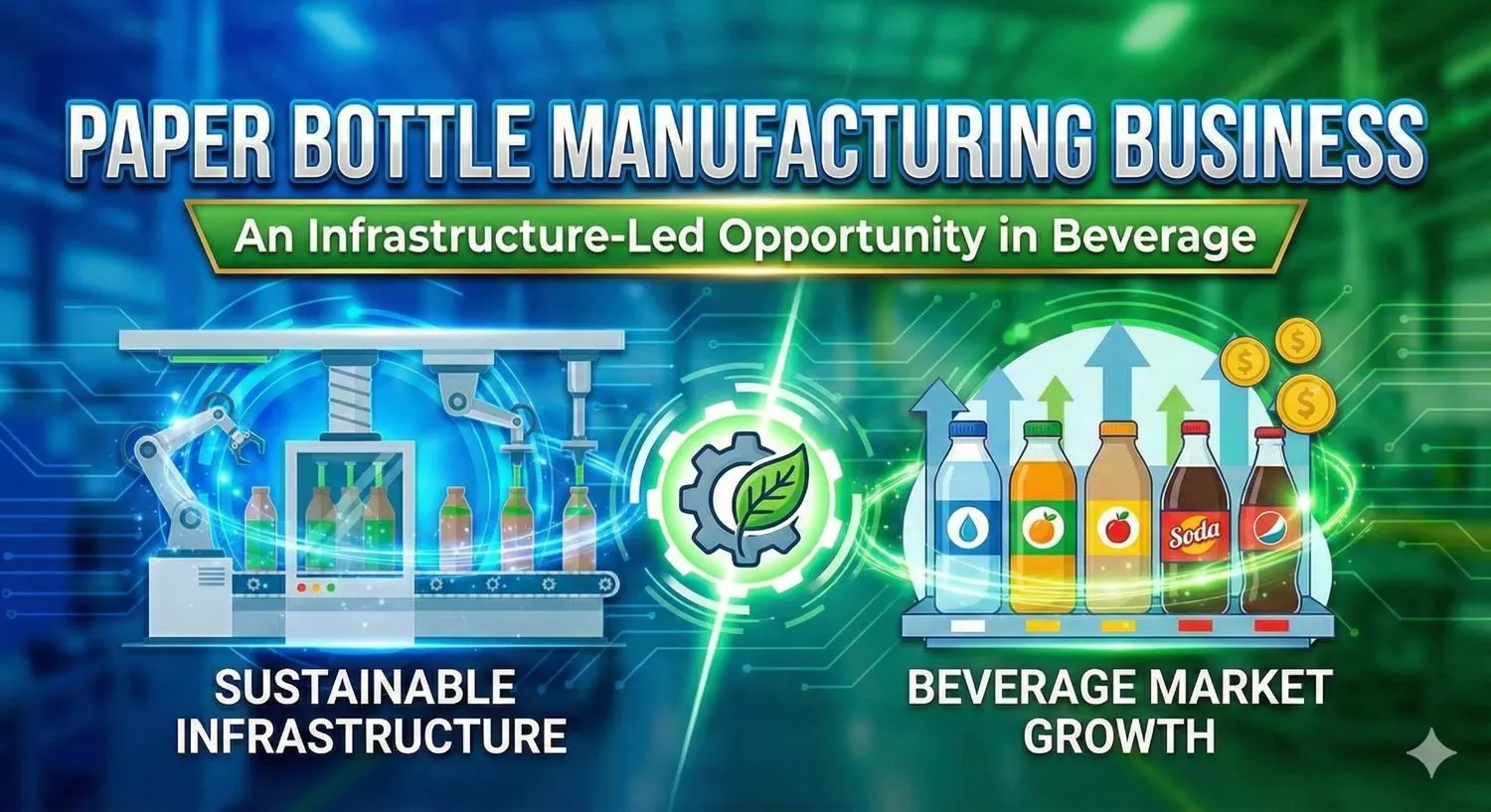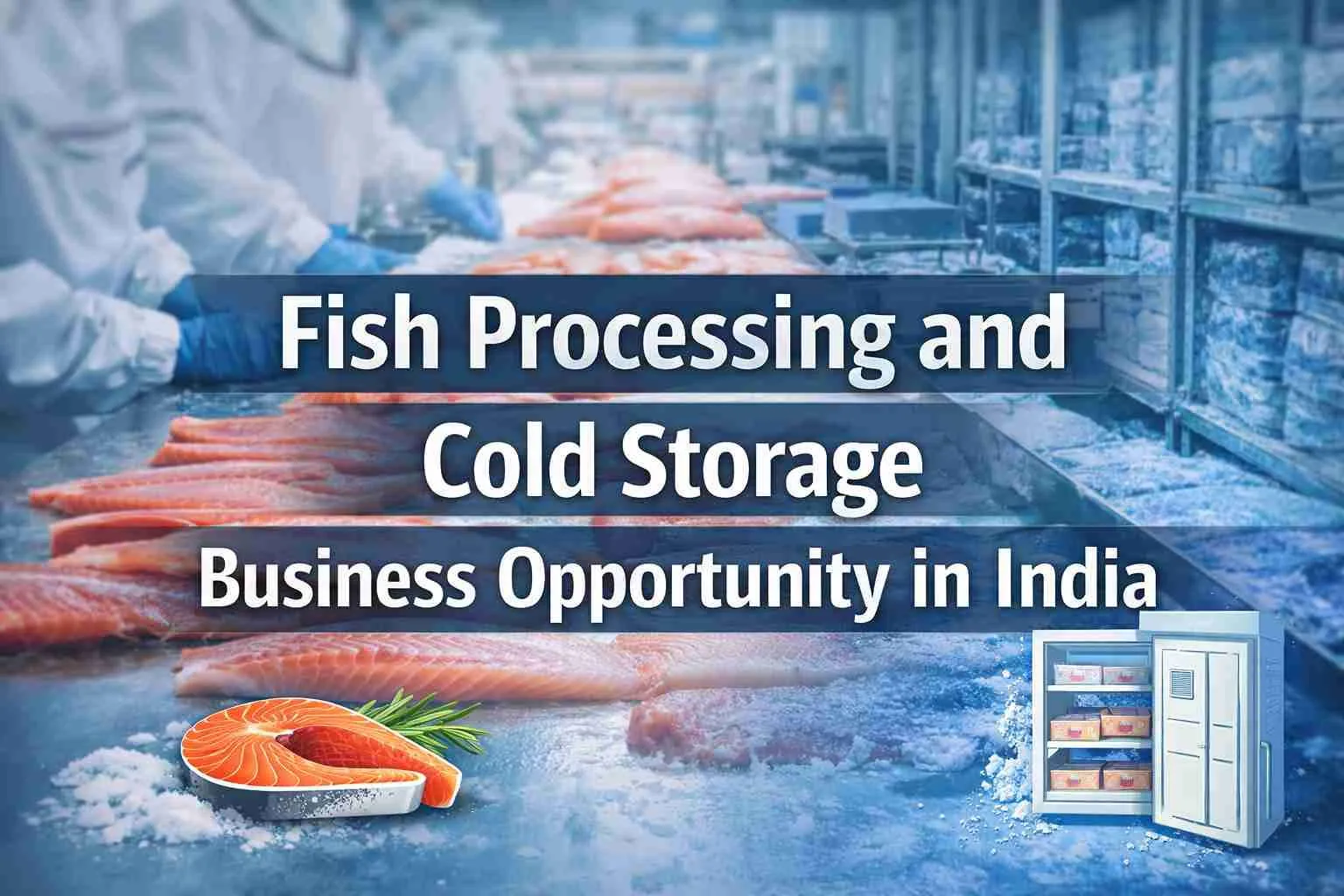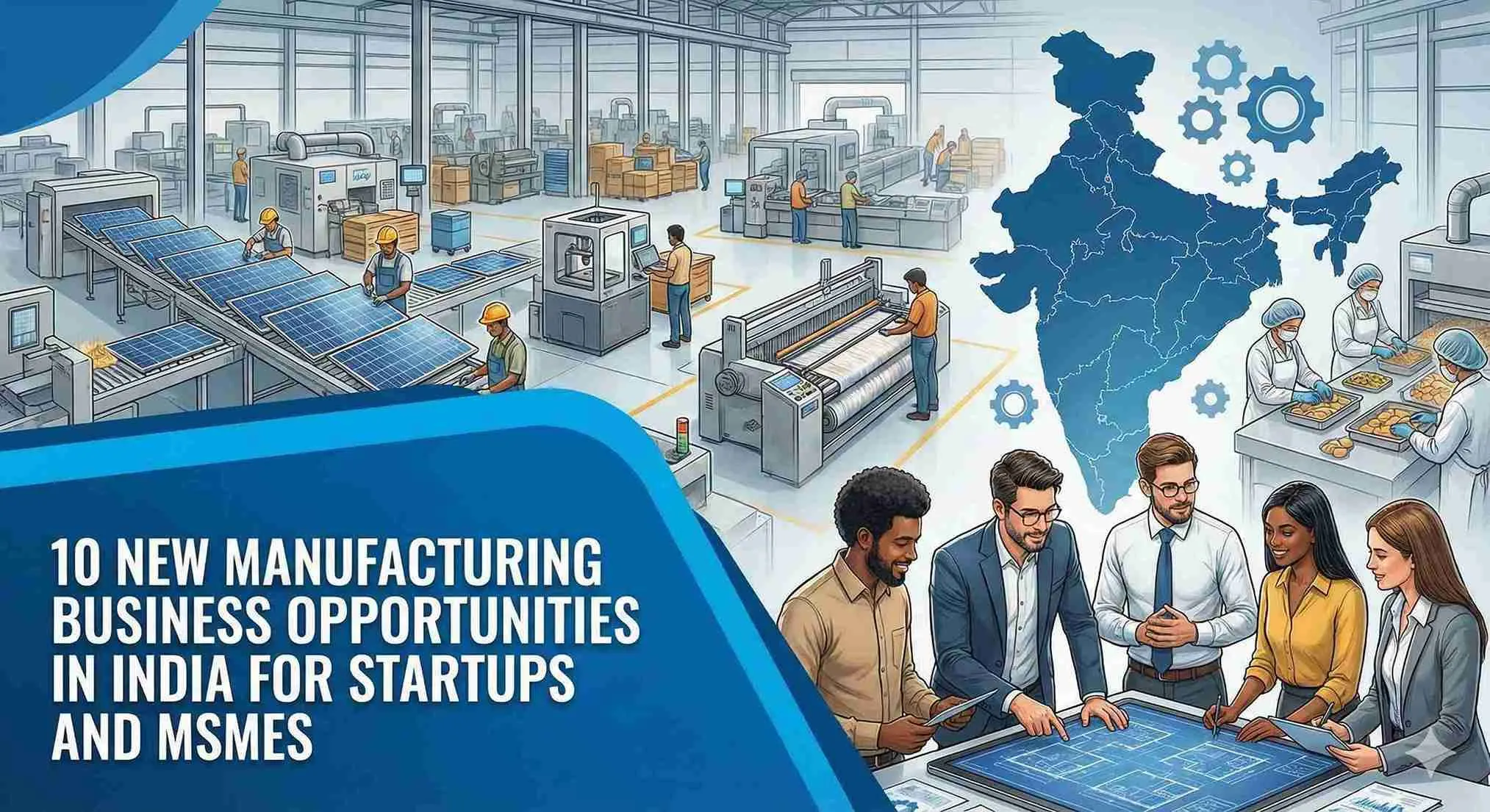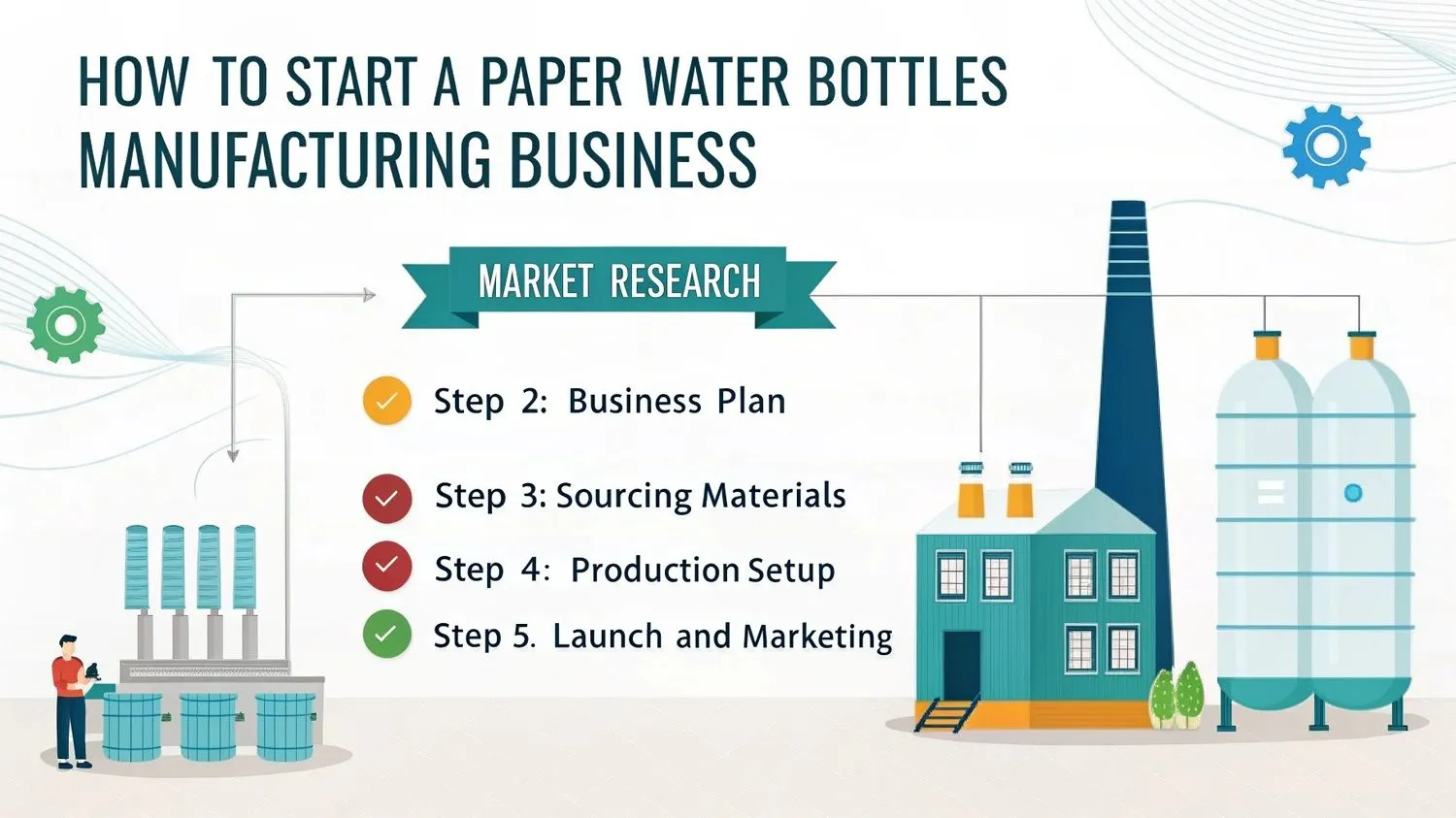Starting an FMCG business in India offers immense potential for entrepreneurs aiming for high turnover and consistent demand. Fast-Moving Consumer Goods (FMCG) include everyday products such as food, beverages, toiletries, over-the-counter drugs, and cleaning items. These are products with high consumption rates and short shelf lives, making them ideal for quick sales and repeated purchases. With India’s rising population, growing disposable income, and evolving consumption habits, the FMCG sector remains one of the most stable and lucrative industries for startups.
Contents
Why You Should Start an FMCG Business in India
India’s FMCG sector is projected to grow at a CAGR of 14.9%, making it one of the fastest-growing segments in the economy. From urban supermarkets to rural kirana stores, FMCG products are sold almost everywhere. The business requires relatively lower investment compared to other manufacturing sectors and yields high returns due to the volume of sales. Moreover, innovations in packaging, supply chain, and e-commerce are transforming how FMCG brands reach consumers.
Let’s explore the key product categories, profitable segments, and strategies to build a successful FMCG business in India.
Top Product Categories in FMCG Business
-
Food & Beverages
This is the most consumed category in the FMCG sector, accounting for nearly 45% of sales. Popular segments include snacks, biscuits, dairy products, packaged drinking water, and ready-to-eat meals. Brands like Nestlé, Amul, and Haldiram’s dominate the market, but there is ample space for new entrants offering healthier, innovative, or regional food products. -
Personal Care Products
Products such as soaps, shampoos, toothpaste, deodorants, and skincare items are essential in daily routines. Consumer awareness around hygiene and grooming has increased dramatically post-pandemic, making personal care a profitable segment in the FMCG business. Startups are thriving by offering organic, herbal, and chemical-free options. -
Household Cleaning Products
From dishwashing liquids to floor cleaners and laundry detergents, household items are essential and fast-moving. Companies like Hindustan Unilever and Procter & Gamble lead this space, but local brands can compete effectively by offering cost-effective solutions or eco-friendly alternatives. -
Health and Wellness Products
This category has gained massive traction with increased health consciousness. Products include protein powders, immunity boosters, herbal tonics, and nutraceuticals. Ayurveda-based products are especially gaining ground, opening a niche within the FMCG business for traditional wellness-focused items. -
Baby and Childcare Products
Diapers, baby foods, wipes, and lotions are seeing growing demand, especially in urban India. As young parents become more quality-conscious, new brands offering safer and organic alternatives are carving out market share. -
Pet Care Products
Pet ownership is on the rise in India, bringing in demand for pet food, grooming, and hygiene products. Though still niche, this category within the FMCG business is expected to grow rapidly in the coming years. -
Stationery and Home Utility
Items like pens, notebooks, tissue rolls, and plastic storage containers fall under the FMCG umbrella due to their frequent use and quick replacement cycle. These products are highly demanded in both homes and institutions.
Profit Margins in FMCG Business
Profitability in an FMCG business is based on volume rather than per-unit margin. While gross profit margins can range from 10% to 30%, success depends on achieving a high sales turnover. Here’s a breakdown of expected margins:
-
Food & Beverage: 10%–20%
-
Personal Care: 20%–30%
-
Household Cleaners: 15%–25%
-
Health & Wellness: 25%–40%
-
Baby Products: 20%–35%
Packaging, branding, distribution, and retail partnerships play a critical role in maintaining competitive pricing while protecting profit margins.
Key Steps to Start an FMCG Business
-
Market Research
Identify gaps in existing product offerings. Understand consumer preferences, regional demands, pricing sensitivity, and competing brands. Niche targeting can help new businesses compete with large players. -
Business Model Selection
Choose between manufacturing, distribution, or retail. A manufacturer creates products, a distributor partners with brands to supply them, while a retailer sells directly to customers. Many entrepreneurs start as distributors or private label sellers before moving into full-scale manufacturing. -
Product Development
Develop high-quality, consistent, and appealing products. Ensure compliance with FSSAI, BIS, or other relevant regulatory standards. Packaging should be attractive, informative, and suitable for shelf display. -
Branding and Positioning
Create a memorable brand name, logo, and slogan. Position your product based on quality, price, health benefits, or convenience. Modern consumers are drawn to brands with authentic stories and sustainable practices. -
Distribution and Logistics
Establish a strong supply chain through local distributors, wholesalers, and retailers. Utilize e-commerce platforms like Amazon, Flipkart, and your own D2C website. Partnering with logistics companies ensures timely delivery and inventory control. -
Marketing and Promotions
Invest in digital marketing to reach urban audiences and traditional advertising for rural penetration. Offer free samples, discounts, and bundling offers to attract first-time buyers. Influencer marketing and regional celebrities can boost brand trust quickly. -
Licensing and Registration
Secure the necessary licenses such as:-
GST Registration
-
FSSAI License (for edible products)
-
Trade License from the local municipality
-
Trademark Registration (for brand protection)
These ensure legal compliance and instill confidence in buyers and distributors.
-
E-commerce and D2C Boom in FMCG
The Direct-to-Consumer (D2C) model is redefining the FMCG business in India. Brands like Mamaearth, WOW Skin Science, and Paper Boat have succeeded by bypassing traditional retail and selling directly through online platforms. This model reduces dependence on intermediaries, enables direct consumer feedback, and offers better control over pricing and branding.
Social commerce and influencer-led sales via Instagram, YouTube, and WhatsApp also help in building a loyal consumer base, especially among millennials and Gen Z.
Challenges in FMCG Business
Despite the potential, the FMCG industry is highly competitive and cost-sensitive. Key challenges include:
-
High initial marketing and branding costs
-
Supply chain inefficiencies
-
Product shelf life issues
-
Price wars with established brands
-
Managing distributor relationships and credit cycles
Entrepreneurs can overcome these by focusing on innovation, building lean operations, and staying responsive to consumer feedback.
Future Trends in FMCG Business
-
Sustainable Packaging – Eco-friendly materials are becoming a consumer preference and regulatory requirement.
-
Organic and Natural Products – Rising demand for clean-label products in food and personal care.
-
Hyperlocal Products – Region-specific items (like spices, snacks) gaining popularity in both urban and rural India.
-
Functional Foods – Items offering health benefits beyond basic nutrition, such as probiotics and herbal infusions.
-
AI and Data Analytics – Companies using customer data to tailor marketing, inventory, and pricing strategies.
Conclusion
Starting an FMCG business in India can be highly rewarding if approached with careful planning and execution. From identifying the right product category to establishing strong distribution and investing in branding, each step plays a vital role in success. As consumption continues to grow and customer preferences evolve, entrepreneurs who prioritize quality, affordability, and innovation can build powerful, scalable brands in this evergreen industry.
With the right mix of product appeal and strategic positioning, your FMCG business could be the next household name in India’s consumer market.














